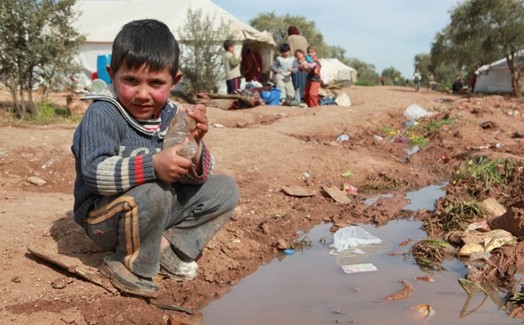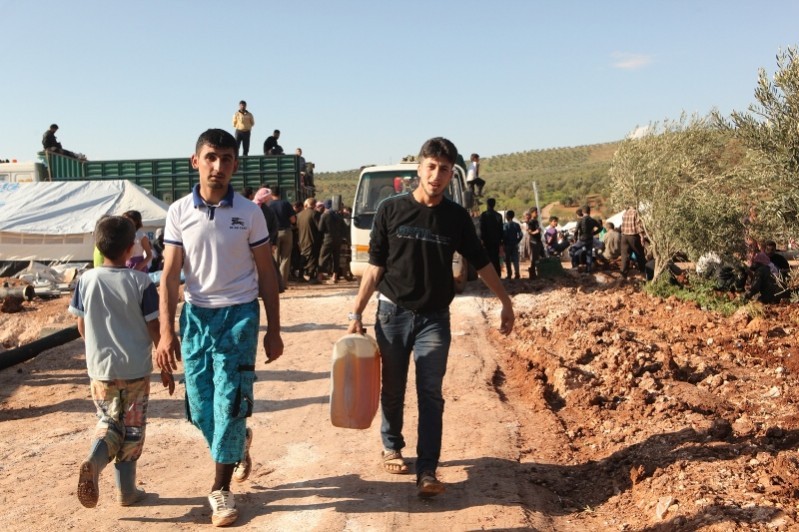
Unhealthy circumstances in the camps close to the Syrian border where many people have taken refuge after fleeing the violence in the country make the people face the risk of contracting an epidemic.
Millions of people in Syria who had to flee their homes due to the unrest in the country, which has been going on for more than two years, had to take refuge in either neighboring countries or safe places close to these countries.
Trying to survive in the camps under difficult circumstances, Syrians are battling against diseases in addition to lack of water, food, clothing and accommodation.
Due to lack of infrastructure in the camps, cesspools are opened in the middle of the camps. Unaware of the risk of contracting deadly diseases, children play with the water that accumulates there. Outbreak of epidemics in the camps is unavoidable with the rising of temperatures.
There are five refugee camps close to Turkish border in the region. Around 50,000 people live in these camps where clean water, number of toilets and bathrooms is insufficient.
50,000 people living in Atma, Qah, Kerame, Aqrabat and Babul Hava face the risk of contracting a deadly disease.
Urgent measures need to be taken
Doctor Emek Dilek Temel who offered medical examinations in the camps in the region earlier, said everyone should be ready for quarantine measures in the region.
“A sewage system is indispensable for a place where people live. When such a system is non-existent, cesspools are opened. The cesspools need to be at least 10 meters below the ground and they should be covered. Otherwise, they lead to diseases such as intestinal infections, hepatitis, upper and lower respiratory infections, urinary tract infections, typhoid fever, diarrhea, dysentery and enteritis. Treatment of these diseases is long and difficult,” Temel said.
“If cesspools will be opened out of an obligation, they should be definitely covered and their surroundings should be disinfected regularly. In addition, residents of such places should be given training on disinfectants and preventive medicine. Everyone should be ready for quarantine measures because the risk for contracting a disease is very high,” she said in further remarks.







